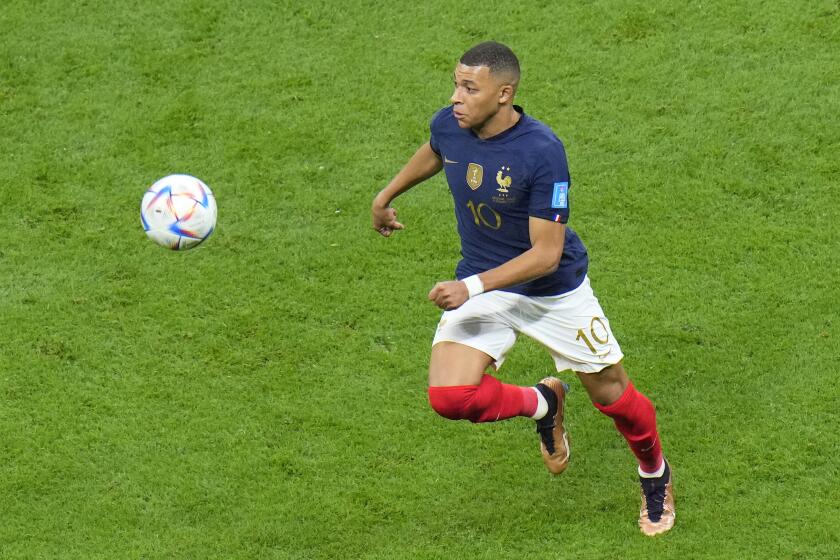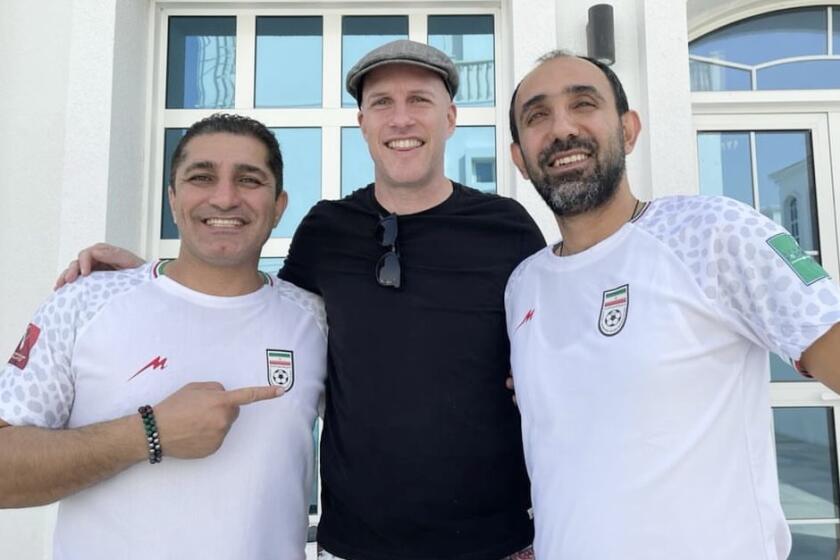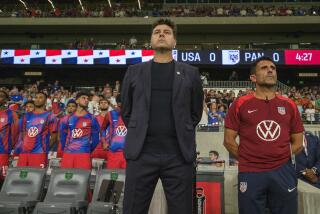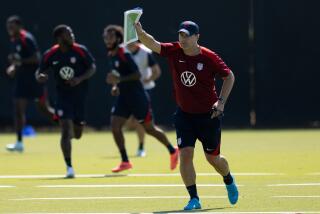Column: U.S. soccer must maximize Gio Reyna’s talents. That’s why Gregg Berhalter has to go
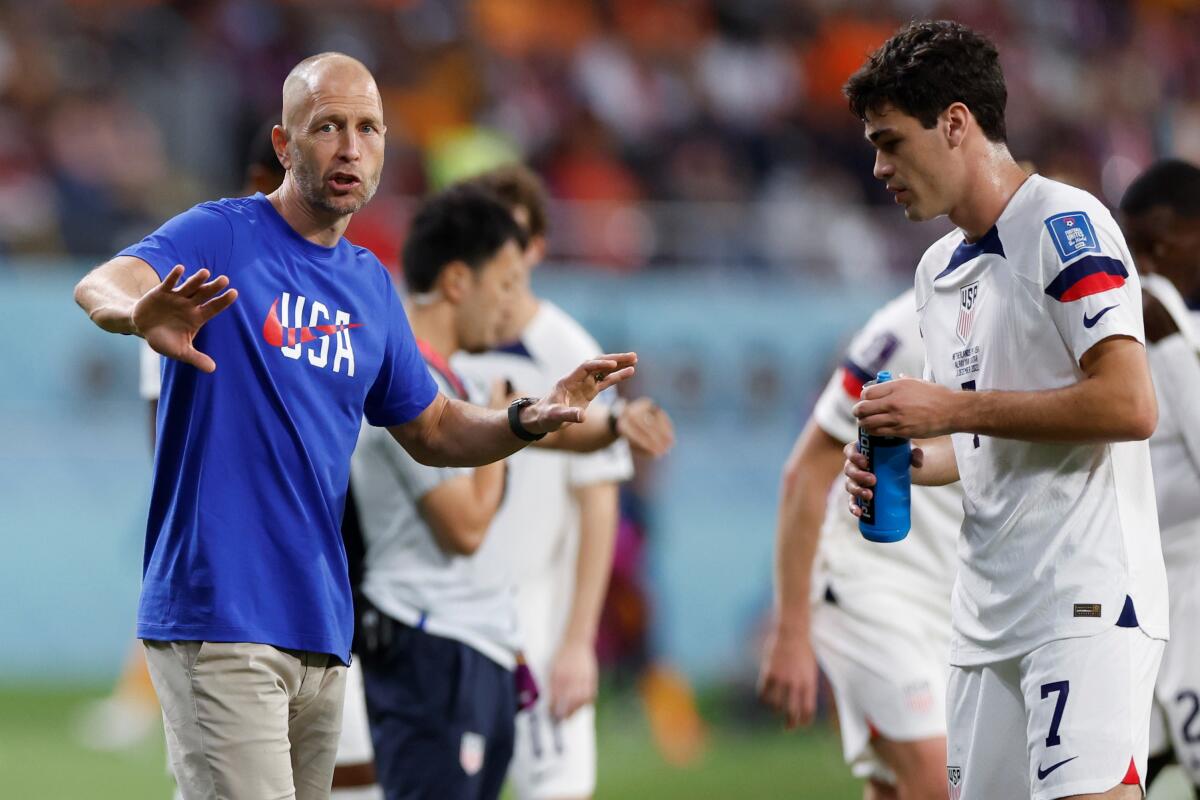
When Joe Torre was in charge of the Dodgers more than a decade ago, he more than once joked that Matt Kemp was the kind of player who could get a manager fired.
Kemp was an unproven 23-year-old at the time. Primarily a basketball player through high school, he hadn’t played as much baseball as other major leaguers his age, but his talent was undeniable. Torre’s light-hearted remark was acknowledgment of the manager’s responsibility to help Kemp realize his potential.
U.S. national soccer team coach Gregg Berhalter has his own Matt Kemp and his name is Giovanni Reyna.
Like Kemp then, Reyna has enormous upside, more than any attacking U.S. player before him.
Like Kemp then, the 20-year-old winger is temperamental.
Like Kemp on the Dodgers then, how Reyna develops will have a significant impact on the future of the U.S. national team, only it doesn’t have the option of trading him.
Now, with Berhalter out of contract at the end of the year, it’s obvious what U.S. Soccer must do next.
The federation has to look for a new coach.
More than a week removed from USA’s World Cup elimination, Reyna’s limited role in the tournament continues to be a subject of controversy, but this isn’t about what transpired in Qatar or who was responsible. This is about the World Cup this country will co-host with Mexico and Canada in four years and the reality that the U.S. will have virtually no chance of advancing into the latter stages of the knockout rounds without Reyna on board.
Reyna has known Berhalter his entire life — Reyna’s father, Claudio, played on the national team with Berhalter — but their relationship now appears to be nearing a point beyond repair.
In the wake of what looked like a smear campaign against him, Reyna posted a message on Instagram on Monday that read, in part, he was “extremely disappointed anyone on the U.S. men’s staff would contribute to it.”
“Coach Berhalter has always said that issues that arise with the team will stay ‘in house’ so we can focus on team unity and progress,” Reyna wrote.
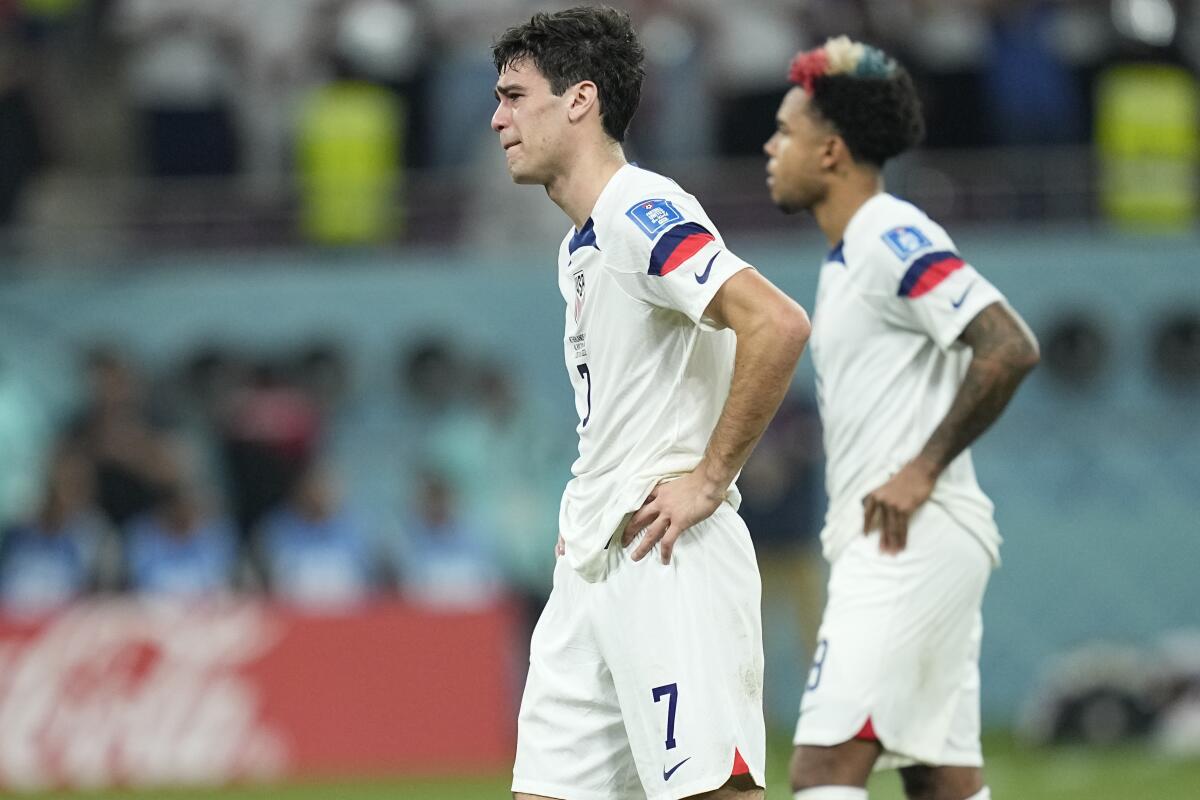
One of them has to go, and it’s Berhalter.
Berhalter can be replaced, Reyna probably can’t, and it’s as simple as that.
The problems between them initially surfaced during a Twitter Spaces livestream I hosted before the second U.S. World Cup game, which was against England. My guest, former U.S. national team forward Eric Wynalda, said there was “internal strife” with Berhalter as a result of his decision to not play Reyna in the tournament opener against Wales.
Start times and TV and streaming options for the World Cup semifinal match between France and Morocco. The winner faces Argentina in Sunday’s final.
Last week, after the U.S. was eliminated by the Netherlands in the round of 16, Berhalter spoke at a leadership symposium in New York. In what U.S. Soccer now claims was intended to be an off-the-record conversation, Berhalter said he was close to sending home from Qatar an unnamed player who “was clearly not meeting expectations on and off the field.” The player was later revealed by multiple media outlets to be Reyna, with the Athletic reporting that he demonstrated “an alarming lack of effort” in training. Whether Berhalter or his assistants sold out Reyna to the Athletic doesn’t matter. What Berhalter said at the symposium and the details in the Athletic’s meticulously-reported story were close enough to create reasonable suspicion. Sometimes perception is reality.
Reyna acknowledged in his Instagram post that he didn’t train well but said his behavior was influenced by something Berhalter told him before the tournament: “… that my role at the tournament would be very limited.”
Reyna had spent the majority of the year sidelined with injuries but played well in the weeks leading up to the World Cup for Borussia Dortmund of Germany’s Bundesliga. On Nov. 5, he scored in a 66-minute appearance against Bochum. During the next six days, he registered a combined 75 minutes in matches against Wolfsburg and Monchengladbach.
Grant Wahl lifted, popularized and pioneered soccer coverage in the U.S. Above all, he shared that giant, adventurous life with colleagues and strangers alike.
He displayed the qualities that have made him a prized prospect, demonstrating the ability to make something out of nothing. Between him and Christian Pulisic, the U.S. now had two players like that; three, if Brenden Aaronson was also counted.
However, the U.S. spent the majority of the tournament with only one of these players on the field at a time, which was a failure on Berhalter’s part. Even after it became clear two or three years ago that Josh Sargent wouldn’t develop into a world-class striker, Berhalter insisted on playing with a traditional No. 9, which is how the U.S. ended up starting the unremarkable Haji Wright against England. The U.S. was locked into Berhalter’s version of a 4-3-3, as the coach hadn’t previously experimented with a false nine or a two-forward system. With Pulisic playing on the left flank, Berhalter opted for the reliable but unspectacular Tim Weah on the opposite wing. The team scored only three times in four games.
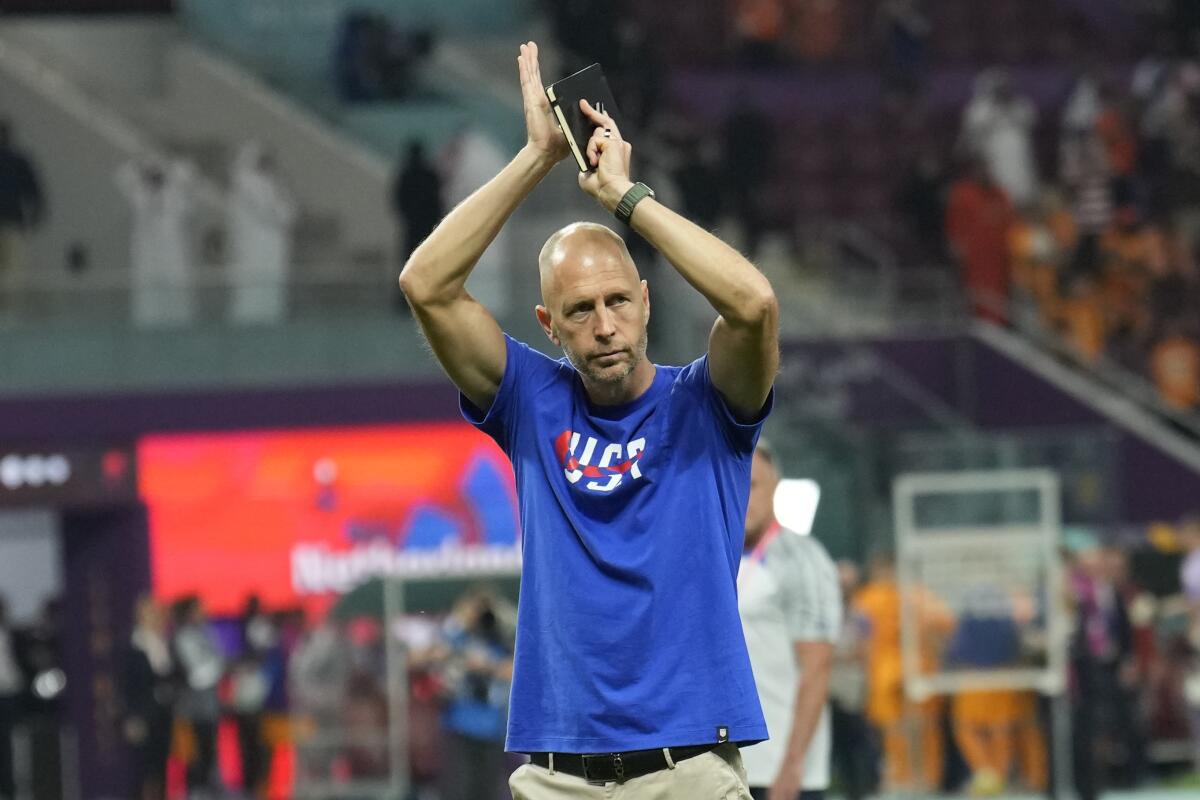
This alone should raise questions about Berhalter’s qualifications for leading the U.S. into the 2026 World Cup, regardless of the some of the strengths the coach showed. As much as the midfield trio of Tyler Adams, Weston McKennie and Yunus Musah was celebrated, what distinguished this U.S. team from its predecessors were Pulisic, Reyna and Aaronson. At minimum, two of them should have been starting, and preferably all three.
Integrating Reyna, Aaronson or some other up-and-coming attacker into the lineup will be the challenge for whoever is coaching the team during the next four years. Recent developments have compromised Berhalter’s ability to do that. A new coach would place the U.S. a step ahead of where it is right now.


